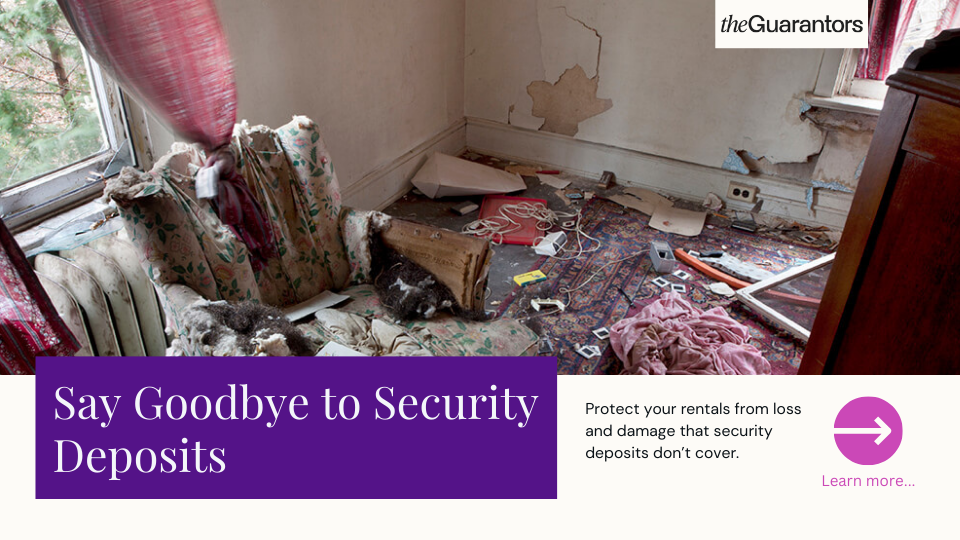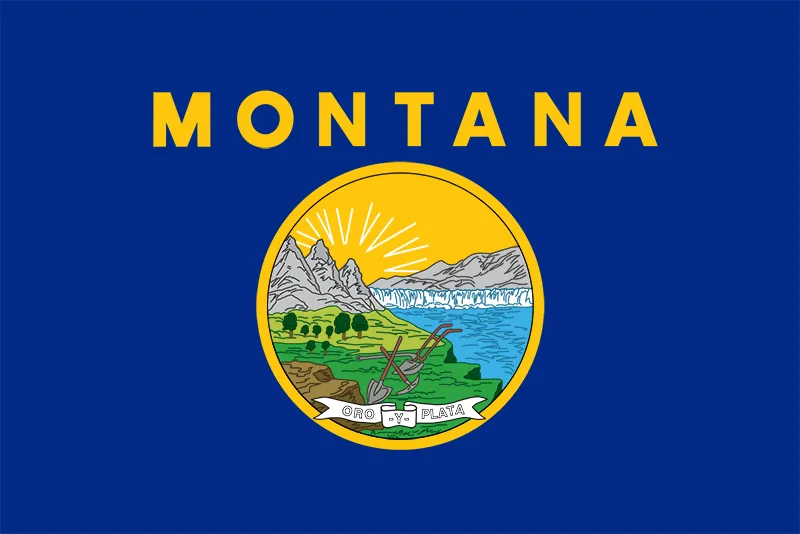Montana Security Deposit Laws are crucial for both landlords and tenants to understand and adhere to. A security deposit is an amount of money that a tenant pays to a landlord at the start of the lease agreement. It serves as a form of financial protection for the landlord in case the tenant causes any damage to the property or breaches the lease terms. Security deposit laws govern how these deposits should be handled, returned, and deducted. It is essential to be aware of the key provisions of these laws to ensure compliance and protect the rights of both parties involved.
In Montana, specific regulations govern security deposits. These regulations include the maximum security deposit amount, the deadline for returning the deposit, itemized deductions, interest on deposits, and rules for handling the deposit. Understanding these provisions is crucial for landlords and tenants to have a mutually beneficial and legally compliant leasing experience.
As with any legal framework, security deposit laws in Montana are subject to changes and updates. It is important for both landlords and tenants to stay informed about any legislative updates that may impact their rights and responsibilities. These changes can have significant implications for both parties involved in lease agreements.
To ensure compliance and protect their interests, landlords should understand how to navigate the requirements of Montana’s security deposit laws. This includes knowing how to collect, handle, and return the deposit according to the legal guidelines. On the other hand, tenants should be aware of their rights and responsibilities to protect their security deposit. They should take necessary steps to safeguard their deposit, such as documenting the condition of the property upon move-in and communicating with their landlord about any concerns or issues.
By familiarizing themselves with Montana Security Deposit Laws and following the tips for both landlords and tenants, both parties can ensure a smooth and fair leasing experience while maintaining a healthy landlord-tenant relationship.
Key takeaway:
- Montana security deposit laws in 2024: Montana has introduced new legislation regarding security deposits for landlords and tenants.
- Changes in maximum security deposit amount: The new Montana security deposit laws specify the maximum amount a landlord can charge as a security deposit.
- Importance of complying with the new laws: Both landlords and tenants should be aware of the changes in Montana security deposit laws to ensure compliance and protect their rights.

Overview of Montana Security Deposit Laws
Montana security deposit laws provide an overview of the rights and obligations for both landlords and tenants. These laws limit the amount of the security deposit to not exceed one month’s rent. Furthermore, landlords are required to store the deposit in a separate account and provide a written receipt to the tenant. When the tenancy ends, landlords have a period of 30 days to either return the deposit or provide an itemized list of deductions. Deductions can be made for unpaid rent, damages beyond normal wear and tear, as well as cleaning costs. It is important to note that Montana law does not mandate landlords to pay interest on security deposits.
What is a Security Deposit?
A security deposit, which is often collected before a tenant moves into a rental property, serves as a form of insurance for potential damages or unpaid rent. Essentially, this amount of money acts as a safeguard for landlords or property owners. Its purpose is to provide financial protection in case tenants fail to fulfill their obligations outlined in the lease agreement. While the specific amount of the security deposit is typically determined by the rental agreement, it is crucial for both tenants and landlords to be aware of the laws and regulations surrounding this form of deposit. Such knowledge ensures compliance and protects the rights of all parties involved. What is a Security Deposit?
Importance of Security Deposit Laws
Security deposit laws play a crucial role in protecting the rights of both landlords and tenants by ensuring that the security deposit is used appropriately and returned in a timely manner. These laws are of paramount importance as they help landlords safeguard against property damage or unpaid rent. Equally, tenants benefit from the knowledge that their deposit will be handled fairly and that they have recourse if any deductions are unjustified. It is imperative for both parties to be aware of their rights and responsibilities under these laws in order to prevent disputes and maintain a transparent rental process. By adhering to security deposit laws, landlords and tenants can foster trust and create a positive rental experience.
Key Provisions of Montana Security Deposit Laws
When it comes to Montana’s security deposit laws, understanding the key provisions is essential. In this section, we’ll dive into the important details you need to know. Find out about the maximum amount allowed for a security deposit, the deadline for returning it, and the rules surrounding itemized deductions from the deposit. We’ll also uncover the facts about interest on security deposits and how these laws regulate the handling of such funds. Stay informed and make the most of Montana’s security deposit laws in 2024!
Maximum Security Deposit Amount
In Montana, the maximum security deposit amount, which is intended to protect the landlord in case of damages or unpaid rent, is typically limited to one month’s rent. It is crucial for both landlords and tenants to be aware of and follow this limit. By understanding and adhering to the maximum security deposit amount, both parties can ensure a fair and legal rental agreement.
True story: “A friend of mine recently rented an apartment in Montana and was surprised to discover that the landlord exceeded the maximum allowed by law while requesting a security deposit. With knowledge of the maximum security deposit amount, my friend was able to flag this violation to the landlord and negotiate a fair amount. This highlights the importance of knowing and understanding the laws related to security deposits.”
Deadline for Returning Security Deposit
The deadline for returning a security deposit is an important aspect of Montana security deposit laws. Landlords in Montana are required to adhere to the deadline for returning the security deposit to tenants within a specific timeframe. According to the law, landlords must ensure the deadline for returning the security deposit within 30 days after the tenant has vacated the property. This deadline guarantees that tenants receive their deposit promptly and allows them to have the funds for any future housing needs. Failure to comply with the deadline for returning the security deposit may lead to legal consequences for the landlord. Therefore, it is crucial for landlords to be aware of and incorporate the deadline for returning the security deposit.
Sarah rented an apartment in Montana and paid a security deposit. When she moved out, she expected to receive her deposit within the deadline for returning security deposit, as required by the law. The landlord did not adhere to the deadline and failed to return the deposit within the specified timeframe. Sarah had to take legal action and filed a complaint with the local housing authority. Eventually, she received her full deposit back, but the process was time-consuming and stressful. This story highlights the importance of landlords complying with the deadline for returning security deposits to avoid legal disputes and inconvenience for tenants.
Itemized Deductions from the Security Deposit
When it comes to itemized deductions from the security deposit, it is crucial for both landlords and tenants to have a clear understanding of the regulations specified in Montana security deposit laws.
- Documentation: Landlords are required to furnish tenants with an itemized list of deductions, encompassing any damages or unpaid rent.
- Proof of Expenses: Landlords should include receipts or invoices for any repairs or cleaning carried out using the security deposit.
- Reasonable Charges: Deductions should solely be applicable to damages exceeding normal wear and tear, and the cost should be reasonable.
- Timeline: Landlords must provide the itemized list of deductions in conjunction with the remaining security deposit within a specified timeframe, as outlined in the law.
- Disputes: In the event that tenants disagree with the deductions, they retain the right to request a meeting or initiate legal action to address the matter.
Interest on Security Deposits
Understanding the interest on security deposits is crucial when it comes to Montana Security Deposit Laws. Here are key points to consider:
- Interest on security deposits: Landlords are not required to pay interest on security deposits in Montana.
- Voluntary interest: Landlords have the option to include a provision in the lease agreement to pay interest on the security deposit.
- Interest calculation: If the landlord chooses to pay interest, they must calculate it using the average annual rate of interest paid on savings accounts by Montana state banks.
- Terms and conditions: The lease agreement should clearly outline the terms and conditions regarding the payment of interest on security deposits.
Rules for Handling Security Deposits
Following the rules for handling security deposits is essential to comply with Montana law and safeguard the rights of both landlords and tenants. In order to achieve this, certain steps need to be taken:
- It is crucial to require a written lease agreement that clearly outlines the terms and conditions of the security deposit.
- A detailed inspection report must be created to document the move-in condition of the rental unit.
- The security deposit should be held in a separate escrow account, and the tenant must be provided with the necessary account information.
- Within 30 days after the tenant moves out, the security deposit, along with an itemized statement of any deductions, must be returned.
- When deducting expenses, only allowable costs, including unpaid rent, damages beyond normal wear and tear, and cleaning fees, should be considered.
- If applicable, the interest earned on the security deposit should also be included.
- Keeping records of all transactions and communications related to the security deposit is of utmost importance.
- Timely communication with the tenant regarding deductions and prompt resolution of any disputes is crucial.
By adhering to these rules, landlords can ensure compliance with Montana Security Deposit Laws, and tenants can protect their rights to receive a fair return of their deposit.
Changes in Montana Security Deposit Laws for 2024
If you’re a landlord or tenant in Montana, get ready for some big changes in the security deposit laws for 2024! In this section, we’ll dive into the recent legislative updates that have been shaking up the way security deposits are handled. We’ll explore the impact these changes have on both landlords and tenants, and what you need to know to navigate this shifting landscape. Get ready to stay informed and be ahead of the game in the world of Montana security deposit laws!
Legislative Updates
Legislative updates play a crucial role in shaping Montana’s security deposit laws. Here are some key changes for 2024:
- Increased maximum security deposit amount to protect landlords.
- Shortened deadline for returning security deposits to benefit tenants.
- Implemented stricter rules on itemized deductions, ensuring transparency for both parties.
- Revised interest rates on security deposits to align with market trends.
- Enhanced regulations on handling security deposits, promoting fair practices.
These updates impact both landlords and tenants, ensuring a balanced and transparent rental process. Compliance with the new laws is vital for landlords, while tenants must understand their rights to protect their security deposits.
Jane, a tenant in Montana, was relieved to receive her full security deposit back within the new, shortened deadline. The legislative updates empowered her to assert her rights and reinforced trust in the rental system.
Impact on Landlords and Tenants
The changes in Montana Security Deposit Laws for 2024 have a significant impact on both landlords and tenants.
- For landlords, it is crucial to stay updated on legislative changes and ensure compliance with new regulations to avoid legal issues and understand the impact on landlords and tenants.
- Tenants benefit from increased protection, as the new laws specify the maximum security deposit amount and set a deadline for returning the deposit, thus having a direct impact on landlords and tenants.
- Landlords must provide itemized deductions from the security deposit and follow proper procedures for handling and returning deposits, which further emphasize the impact on landlords and tenants.
- These changes aim to create a fair and transparent system for both parties, ensuring landlords’ accountability and protecting tenants’ rights, thus addressing the impact on landlords and tenants.
Tips for Landlords and Tenants
When dealing with security deposits, both landlords and tenants should keep a few tips in mind to ensure a smooth rental experience:
- Communication: Landlords should clearly communicate the terms of the security deposit to tenants, including the amount, due date, and any allowable deductions.
- Documentation: Tenants should thoroughly document the condition of the rental unit before moving in and provide a copy to the landlord. This will help avoid any disputes regarding damages.
- Timely Return: Landlords should adhere to state laws regarding returning security deposits, providing an itemized list of deductions, if any, within the required timeframe.
- Resolving Disputes: If there are any disagreements over the security deposit, landlords and tenants should try to resolve them amicably. If necessary, they can seek mediation or legal assistance.
Landlords: How to Comply with Montana Security Deposit Laws?
To comply with Montana’s security deposit laws, landlords can follow these steps on how to comply with Montana security deposit laws:
- As landlords, it is important to set the security deposit amount within the legal limit, which is typically one month’s rent.
- Creating a written agreement that outlines the terms and conditions of the security deposit is crucial for landlords to comply with Montana security deposit laws.
- Landlords must provide tenants with an itemized list of any deductions made from the deposit within 30 days of the lease termination to ensure compliance with Montana security deposit laws.
- When landlords receive the tenant’s forwarding address, it is their responsibility to return the security deposit, minus any valid deductions, within 10 days to comply with Montana security deposit laws.
Pro-tip for landlords: To avoid misunderstandings and disputes, it is advisable to keep detailed records of any deductions made and maintain regular communication with tenants.
Landlords: How to Comply with Montana Security Deposit Laws?
Tenants: How to Protect Your Security Deposit?
Are you a tenant wondering how to protect your security deposit? Follow these essential steps:
- As tenants, it is important to read and understand the lease agreement thoroughly before signing.
- Prior to moving into the rental unit, document its condition by taking photos or videos.
- For any repairs or maintenance issues, submit a written request and keep copies for your records.
- Throughout your tenancy, make sure to keep the rental unit clean and well-maintained.
- For any concerns or disputes related to the security deposit, communicate with your landlord in writing.
- When moving out, thoroughly clean the rental unit once again and document its condition using photos or videos.
- Request a final walk-through with your landlord and discuss any discrepancies that may arise.
- Lastly, follow the proper procedures for returning keys and terminating the lease agreement.
Remember, by following these steps, tenants can effectively protect their security deposits and ensure a smooth rental experience.
Some Facts About Montana Security Deposit Laws: What’s new in 2024:
- ✅ Montana landlords are allowed to charge a security deposit.
- ✅ The maximum amount a landlord can charge as a security deposit in Montana is equal to one month’s rent.
- ✅ Security deposits in Montana can be used by landlords to cover costs associated with processing a new tenant, repairing damages caused by the tenant or their guests, cleaning the premises upon termination of the tenancy, and remedying future defaults by the tenant.
- ✅ If the lease term in Montana is six months or longer, the landlord can demand an advance payment of not less than six months’ rent as a security deposit.
- ✅ Landlords and tenants in Montana can agree to alternative arrangements regarding security deposits as long as they are mutually agreed upon.
Frequently Asked Questions
What is California Assembly Bill 12 (AB 12)?
California Assembly Bill 12, also known as AB 12, was introduced by Assembly Member Haney on December 5, 2022. The bill aims to amend Section 1950.5 of the Civil Code, which regulates the terms and conditions of residential tenancies in California.
What changes does AB 12 propose regarding security deposits?
AB 12 seeks to limit the security deposit to an amount equal to one month’s rent, regardless of whether the property is furnished or unfurnished. Currently, landlords are prohibited from demanding or receiving security deposits exceeding two months’ rent for unfurnished properties or three months’ rent for furnished properties, in addition to the first month’s rent.
What does AB 12 consider as “security” in relation to the deposit?
AB 12 defines “security” as any payment, fee, deposit, or charge imposed at the beginning of the tenancy to reimburse the landlord for costs associated with processing a new tenant or as an advance payment of rent. It includes compensation for rent defaults, repair of damages caused by the tenant or their guests, cleaning upon termination, and addressing future defaults by the tenant.
Are landlords allowed to demand a security deposit exceeding one month’s rent under AB 12?
No, AB 12 specifies that a landlord may not demand or receive a security deposit exceeding one month’s rent, in addition to the first month’s rent, unless the lease term is six months or longer. In such cases, an advance payment of not less than six months’ rent is allowed.
Can landlords and tenants agree to different arrangements regarding security deposits under AB 12?
AB 12 does not prevent landlords and tenants from reaching alternative agreements regarding security deposits. The bill provides a baseline limit for security deposits but allows for flexibility if mutually agreed upon by both parties.
What is the partisan nature of AB 12?
AB 12 is a partisan bill, with all 15 co-authors being Democrats. This means that it has the support and sponsorship of Democratic assembly members, indicating a potential alignment with the party’s priorities.
Dave is a seasoned real estate investor with over 12 years of experience in the industry. Specializing in single-family residential real estate, David’s strategic approach combines market analysis, financial acumen, and a deep understanding of urban development trends to maximize investment returns.










